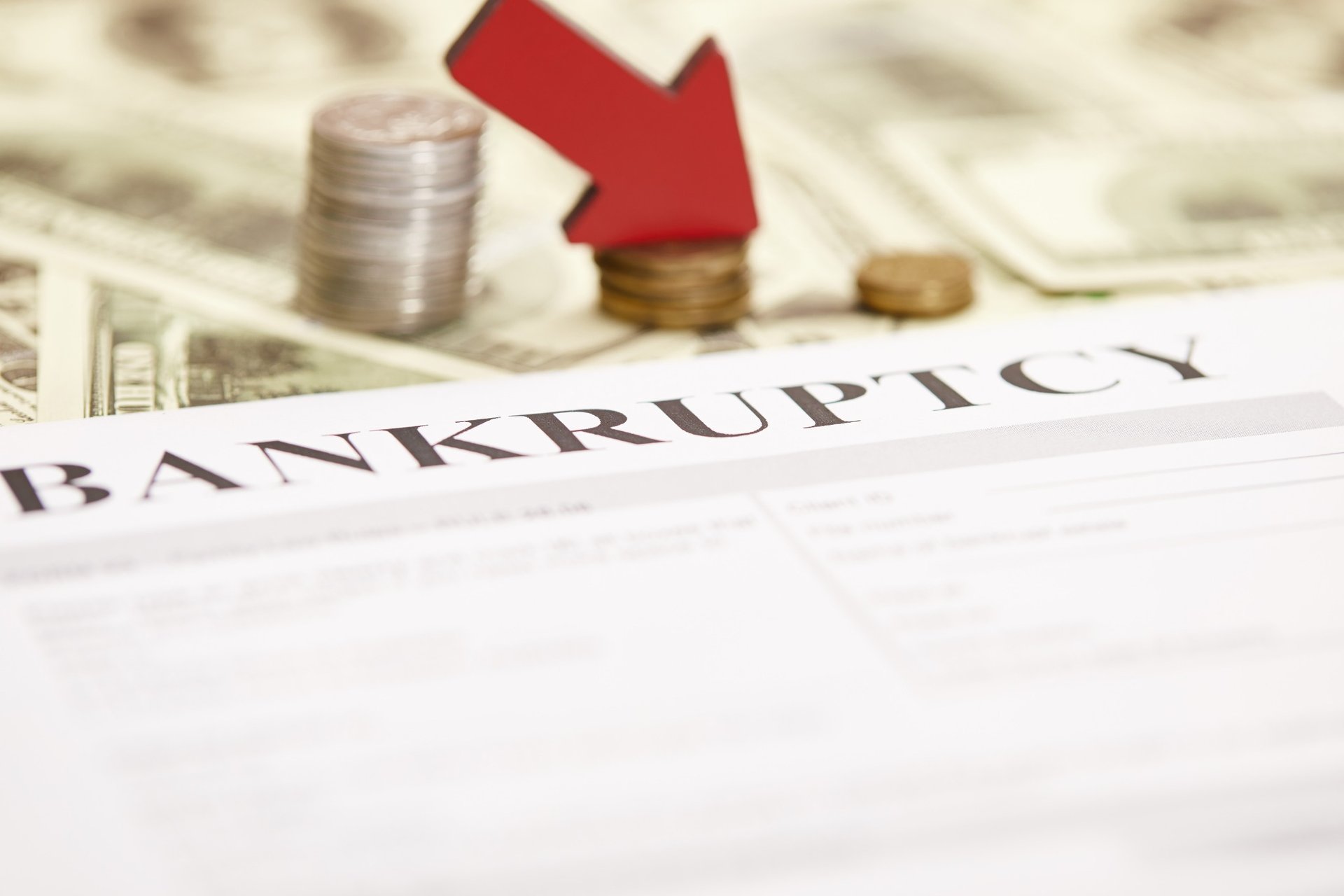Corbin Bankruptcy Lawyer


Financial stress can make your situation feel hopeless. When creditor calls won’t stop, wage garnishment threatens your family’s security, and foreclosure looms over your home, the weight of debt can complicate every aspect of your life.
Without taking action, you risk losing your car, your home, and your peace of mind. Unpaid bills—from medical expenses to credit cards—keep piling up, collection agencies grow more aggressive, and your credit score drops month after month. The longer you wait, the fewer options remain.
O’Bryan Law Offices provides experienced Corbin bankruptcy lawyer services to help Kentucky families find their fresh start.
- Over 30,000 families helped across Kentucky and Indiana
- Over 40 years of combined bankruptcy experience
- Led by a multi-year Super Lawyer in Bankruptcy
Restart. Rebuild. Restore. Call us today at (502) 339-0222 or complete our online form to schedule your free consultation and start your path to financial freedom
A Brief Overview of Bankruptcy in Corbin, KY
Bankruptcy represents a legal tool designed to provide debt relief, not a personal failure. As a form of federal law, the U.S. Bankruptcy Code offers individuals and families the opportunity to eliminate overwhelming financial obligations while protecting essential assets.
The U.S. Bankruptcy Court for the Eastern District of Kentucky handles all bankruptcy filings for the Corbin area. Our attorneys work regularly with this court system and understand the local procedures that impact your case timeline and outcome.
According to data from the U.S. Bankruptcy Court for the Western District of Kentucky, there were 5,752 bankruptcy filings in 2024. Of these, approximately 53% were Chapter 13 cases, and 43% were Chapter 7, showing that more Kentucky residents pursued structured repayment plans over immediate debt discharge.
Filing for bankruptcy follows a structured legal process that our experienced team guides you through step by step.
The bankruptcy process for Corbin residents typically includes:
- Initial consultation: We evaluate your complete financial situation and determine the best bankruptcy chapter for your needs.
- Document preparation: Our staff assists in gathering required financial records, tax returns, and debt documentation.
- Credit counseling: Complete mandatory counseling through an approved agency within 180 days before filing.
- Filing petition: Submit your bankruptcy petition to the Eastern District Court along with all supporting schedules.
- Automatic stay: Creditor harassment, wage garnishment, and foreclosure proceedings stop immediately upon filing.
- Meeting of creditors: Attend the 341 meeting where you answer questions about your financial situation under oath.
- Debt discharge: Receive your final discharge order eliminating qualifying debts permanently.
✔️ Understanding Kentucky bankruptcy laws helps ensure you maximize the benefits available under both federal and state protections.
What Bankruptcy Can & Cannot Do For You
Bankruptcy law provides powerful tools for debt relief, but certain limitations apply under both federal statutes and Kentucky regulations. Together, these laws shape what bankruptcy can and cannot do for you.
| Bankruptcy Can | Bankruptcy Cannot |
|---|---|
| Stop foreclosure proceedings immediately | Eliminate child support or alimony obligations |
| End wage garnishment and bank levies | Discharge recent tax debts (less than 3 years old) |
| Eliminate credit card and medical debt | Remove student loans (except in rare hardship cases) |
| Discharge certain old tax obligations | Erase court fines or criminal restitution |
| Stop creditor harassment permanently | Eliminate secured debt without surrendering collateral |
| Protect exempt property under KY law | Discharge debts incurred through fraud |
Federal bankruptcy law sets the overall structure, while Kentucky’s exemption rules help protect key assets like your home, car, and personal belongings. These protections allow many individuals to wipe out debt without sacrificing their foundation for recovery.
Our attorneys will explain how these laws apply to your unique financial circumstances and guide you through every step of the process.
💡 Hypothetical scenario: A Corbin family faces $45,000 in medical debt after a car accident. With wages being garnished and foreclosure threats escalating, they turn to Chapter 7 bankruptcy. This helps them discharge the medical debt and protect their home through Kentucky’s homestead exemption.
Know “when is it too late to stop foreclosure” can help you take action before losing your home becomes inevitable.
The pros and cons of filing for bankruptcy require careful consideration of your individual circumstances and long-term financial goals. We’re here to help you make an informed decision with confidence.
Why Choose O'Bryan Law Offices as Your Bankruptcy Lawyer in Corbin, KY?
Since 1994, O’Bryan Law Offices has provided comprehensive bankruptcy assistance to individuals and families throughout Kentucky. As a family-owned firm, we are deeply committed to helping clients regain financial stability with compassion, professionalism, and clarity.
Attorney Julie O’Bryan, our founder, received her law degree from the University of Louisville and has practiced bankruptcy law for over 30 years. In 2003, she became board-certified in consumer bankruptcy law by the American Board of Certification—a distinction held by only six attorneys in the entire state of Kentucky.
This certification is not simply a title. It requires:
- Demonstrated expertise in bankruptcy cases
- Extensive continuing legal education
- Proven commitment to ethical, knowledgeable representation
Julie has maintained her board certification for over 20 years, continually advancing her knowledge to stay current with evolving federal and state regulations. This positions our firm ahead of general practice attorneys who may not have the same depth of focus or specialized training.
💡 At O’Bryan Law Offices, you get more than legal services—you get personal attention from a team that treats your situation with the seriousness it deserves.
- Offices conveniently located in Louisville, Frankfort, and New Albany
- You speak directly with an attorney, not just office staff
- Flat-fee billing with no hidden charges
- Two dedicated paralegals are assigned to every case for complete support
We’re proud to maintain professional profiles with a “superb” rating on Avvo, Super Lawyers, and the Kentucky Bar Association, further reinforcing our reputation for excellence and ethical practice.
Additionally, our attorneys participate in continuing legal education through institutions like the University of Kentucky College of Law, ensuring we remain fully informed on the latest changes in bankruptcy law and debt relief strategies.
O’Bryan Law Offices: Family-Owned. Family-Focused. Your Financial Freedom—contact us online to schedule your free consultation.
Types of Bankruptcy: Chapter 7 vs. Chapter 13
Understanding the differences between Chapter 7 and Chapter 13 bankruptcy helps determine which option best addresses your financial needs.
| Feature | Chapter 7 | Chapter 13 |
|---|---|---|
| Duration | 3-4 months | 3-5 years |
| Income Requirement | Must pass means test | Must have regular income |
| Debt Relief | Most unsecured debt discharged | Partial repayment + discharge |
| Property Protection | May lose non-exempt assets | Keep all property while repaying |
| Co-Signer Protection | No protection offered | Yes – co-debtor stay applies |
| Monthly Payments | None required | Court-approved payment plan |
| Best For | Low income, few assets | Higher income, valuable property |
💡Hypothetical Scenario: An individual with regular income owes $75,000 across multiple credit cards but wants to keep their home and vehicle. Chapter 13 bankruptcy would allow a 3-5 year payment plan addressing only what they can afford while protecting all assets and eliminating remaining debt at completion.
Chapter 7 bankruptcy works best for individuals with limited income and few assets, while Chapter 13 helps those with regular income who want to keep their home or car while catching up on missed payments.
Our experienced attorneys review your complete financial picture to recommend the bankruptcy chapter that provides maximum debt relief while protecting your most important assets. We handle all the paperwork and guide you through each step of the process.
Important Information From Our Corbin Bankruptcy Attorneys
We understand that bankruptcy law can feel overwhelming, but you don’t have to handle it alone. During your consultation, our attorneys will break down how these rules apply to your unique situation, so you can make confident, informed decisions about your financial future.
Debts Dischargeable Through Bankruptcy
Dischargeable debts that bankruptcy can eliminate include:
- Credit card balances and personal loans
- Medical bills and hospital debt
- Utility bills and cell phone contracts
- Business debts from failed ventures
- Old income tax debt (over 3 years)
- Deficiency balances after repossession
- Lawsuit judgments for money damages
Non-dischargeable debts that typically survive bankruptcy:
- Child support and alimony obligations
- Student loans (except rare hardship cases)
- Recent tax debts and penalties
- Court fines and criminal restitution
- Debts incurred through fraud or embezzlement
- Personal injury judgments from drunk driving
Our attorneys carefully review each debt type with clients to ensure accurate expectations about what bankruptcy can accomplish in their situation.
Protecting Your Assets: Exempt & Non-Exempt Property
Kentucky’s generous exemption laws allow bankruptcy filers to protect significant property while eliminating debt. Understanding these exemptions helps you retain essential assets throughout the bankruptcy process.
As of 2025, Kentucky bankruptcy exemptions include:
- Homestead: Up to $31,575 in home equity
- Vehicle: Up to $5,000 in car value
- Personal property: $3,000 in household goods and clothing
- Tools of trade: Up to $3,000 in work equipment
- Retirement accounts: 401(k), IRA, and pension plans are fully protected
- Insurance: Life insurance cash value is exempt up to $11,525 under Kentucky law—or up to $13,400 if you elect the federal exemption, depending on which offers greater protection.
- Wages: 75% of earned income is exempt from garnishment
We focus on strategic planning before filing to help maximize these exemptions and protect additional property through proper timing and asset positioning.
Non-exempt property may need to be surrendered in Chapter 7 bankruptcy, but Chapter 13 allows you to keep all property while paying creditors through a manageable payment plan.
Our knowledgeable team helps structure your case to protect as much property as possible while achieving maximum debt relief. Understanding specifics, such as when do I have to surrender my vehicle in a Chapter 13, depends on your circumstances and payment plan.
Impact on Credit + Life After Bankruptcy
Bankruptcy appears on your credit report for 7-10 years, but most clients begin rebuilding credit within 12-24 months after discharge. The immediate debt relief often improves your financial position faster than struggling with overwhelming payments for years.
Post-bankruptcy credit rebuilding typically follows this timeline:
- Immediately: Secured credit cards available
- 6-12 months: Unsolicited credit offers begin arriving
- 12-18 months: Auto loans at reasonable rates
- 24-36 months: Mortgage loans become available
💡 Many clients find that bankruptcy actually increases their employability by eliminating financial stress and demonstrating they’ve taken responsible action to resolve debt problems.
Employers cannot legally discriminate based on bankruptcy filings, and many positions requiring financial responsibility view bankruptcy more favorably than ongoing debt struggles.
Automatic Stay Protection
The automatic stay takes effect immediately when your bankruptcy petition is filed, providing powerful legal protection against creditor collection activities. This federal law stops virtually all collection efforts until your case concludes.
The automatic stay halts:
- Creditor calls: Phone harassment and demand letters stop immediately upon filing your petition.
- Wage garnishments: Payroll deductions end, and you keep your full paycheck while your case proceeds.
- Lawsuits: Pending collection lawsuits freeze, and creditors cannot file new legal actions against you.
- Foreclosure: Home foreclosure proceedings stop, giving you time to explore options for keeping your house.
- Repossession: Vehicle repossession efforts cease, though you must maintain payments to retain your car.
- Bank levies: Frozen accounts get released, and creditors cannot seize funds from checking or savings accounts.
Violating the automatic stay subjects creditors to court sanctions and potential damages, providing strong legal protection during your bankruptcy case.
Co-Signers and Bankruptcy Implications
Your bankruptcy filing affects co-signers on joint debts differently depending on which chapter you choose. Understanding these implications helps protect family relationships during the bankruptcy process.
Chapter 7 bankruptcy provides no protection for co-signers:
- Co-signers remain fully liable for joint debts
- Creditors can pursue co-signers for the entire balance
- Your discharge doesn’t eliminate the co-signer’s obligation
Chapter 13 bankruptcy includes co-debtor stay protection:
- Co-signers receive automatic stay protection on consumer debts
- Creditors cannot pursue co-signers during your payment plan
- Protection continues as long as your plan payments remain current
Our attorneys structure cases to minimize impact on family relationships while maximizing your debt relief. We help you understand how does bankruptcy affect a spouse and other family members before you file.
Employment Considerations
Federal law prohibits employment discrimination based on bankruptcy filings. Section 525 of the Bankruptcy Code provides specific protections for both government and private sector workers.
Employment protections include:
- Employers cannot fire you solely because of bankruptcy
- Government agencies cannot deny licenses or benefits due to bankruptcy
- Private employers cannot use bankruptcy as the sole reason for hiring decisions
- Existing employment contracts remain valid throughout bankruptcy
The Equal Employment Opportunity Commission enforces these protections and investigates discrimination complaints related to bankruptcy filings.
Many employers view bankruptcy positively as evidence that you’ve taken responsible action to resolve financial problems rather than ignoring them.
Timeline of the Bankruptcy Process
Understanding the bankruptcy timeline helps you plan for important deadlines and court appearances throughout your case.
Chapter 7 timeline:
- Filing to discharge: Approximately 90-120 days
- Meeting of creditors: 30-45 days after filing
- Objection deadline: 60 days after the meeting of creditors
- Final discharge: 60-90 days after the objection deadline
Chapter 13 timeline:
- Plan confirmation: 30-60 days after filing
- Payment plan duration: 3-5 years based on income
- Final discharge: Upon completion of all payments
- Modification requests: Available throughout the plan period
📌 Our firm’s role includes minimizing delays by ensuring accurate paperwork, timely responses to court requests, and proactive communication with trustees and creditors.
Meeting deadlines and discharge dates directly impact your case outcome, so our staff closely monitors all time-sensitive requirements.
Costs Associated With Filing for Bankruptcy in Corbin
Bankruptcy costs vary depending on case complexity and which chapter you choose. These figures represent typical expenses for Corbin area filers, though individual costs may differ. Additional out-of-pocket costs may include required credit counseling courses (approximately $15 each) and credit report fees.
| Expense | Chapter 7 | Chapter 13 |
|---|---|---|
| Court Filing Fee | $338 | $313 |
| Attorney Fees (typical) | $1,500-$2,500 | $4,500-$4,750 |
| Credit Counseling | ~$15 per course | ~$15 per course |
| Trustee Fees | Included in filing fee | 3-10% of payments |
| Document Preparation | Included in attorney fees | Included in attorney fees |
Our law office offers flexible payment plans to make bankruptcy affordable for families struggling with debt. We believe financial problems shouldn’t prevent you from accessing the legal help you need.
💡 Many clients find that one missed payment to creditors exceeds their total bankruptcy costs, making professional legal assistance a wise investment in their financial future.
Alternatives to Bankruptcy
We won’t recommend bankruptcy if it isn’t the right solution for your situation. Our honest assessment includes exploring all debt relief alternatives to find the best approach for your circumstances.
Debt consolidation combines multiple debts into a single payment:
- Pros: Simplified payments, potentially lower interest rates
- Cons: Requires good credit, doesn’t reduce total debt owed
Debt negotiation involves settling debts for less than the full balance:
- Pros: Reduces total debt amount, faster resolution than bankruptcy
- Cons: Tax consequences on forgiven debt, credit score impact
Debt management through credit counseling agencies:
- Pros: Professional guidance, potential interest rate reduction
- Cons: Requires steady income, doesn’t eliminate principal balances
Being aware of debt settlement pros and cons helps you make informed decisions about alternatives to bankruptcy.
⚠️ Many debt relief companies make promises they cannot keep, so it’s important to work with licensed attorneys who provide honest assessments of your situation. Our attorneys explain why you should never pay a collection agency without understanding your legal rights and options first.

Contact a Corbin Bankruptcy Lawyer at O'Bryan Law Offices Today
Don’t let financial stress control your family’s future any longer. Our experienced Corbin bankruptcy attorneys provide the compassionate guidance and legal expertise you need to secure your fresh start.
We can discuss bankruptcy as well as other forms of debt management, and tailor a plan that fits your specific situation and long-term goals.
Take the next step toward financial freedom – call our experienced bankruptcy team at 502-339-0222 or schedule your free consultation today.

FAQs
Will I lose my home if I file for bankruptcy?
Most homeowners keep their homes through bankruptcy using Kentucky’s homestead exemption or Chapter 13 payment plans. Our attorneys help you explore all options for protecting your home while eliminating other debts.
How long does bankruptcy stay on my credit report?
Chapter 7 bankruptcy remains on your credit report for 10 years, while Chapter 13 appears for 7 years. However, most clients begin receiving credit offers within months of discharge and can qualify for mortgages within 2-3 years.
Can I file bankruptcy if I'm still working?
Yes, employment actually helps your bankruptcy case by demonstrating the ability to pay living expenses post-discharge. Chapter 13 specifically requires regular income to fund your repayment plan, making employment an asset rather than a barrier.
What happens to my car loan in bankruptcy?
You can typically keep your vehicle by continuing payments or surrendering it to eliminate the debt. Chapter 13 allows you to catch up on missed payments while keeping the car, providing flexibility for essential transportation needs.
How much does bankruptcy cost compared to my current debt payments?
Most clients find that total bankruptcy costs equal less than two months of minimum credit card payments. Our flexible payment plans make professional legal assistance affordable while providing permanent debt relief rather than temporary payment reduction.





